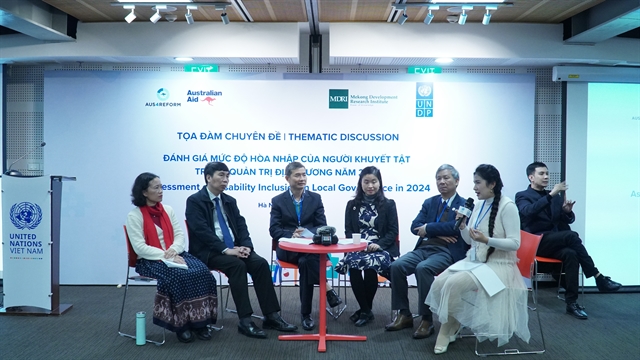

Abbott announced that a team of its scientists identified a new subtype of the human immunodeficiency virus (HIV), called HIV-1 Group M, subtype L on November 8.

|
| Abbott announced that a team of its scientists identified a new subtype of the human immunodeficiency virus (HIV), called HIV-1 Group M, subtype L on November 8. — Photo courtesy of Abbott |
HCM CITY — Abbott announced that a team of its scientists identified a new subtype of the human immunodeficiency virus (HIV), called HIV-1 Group M, subtype L, on November 8.
The findings, published in the Journal of Acquired Immune Deficiency Syndromes (JAIDS), show the role of next-generation genome sequencing is playing in helping researchers stay one step ahead of mutating viruses and avoiding new pandemics.
"In an increasingly connected world, we can no longer think of viruses being contained to one location," said Carole McArthur, Ph.D., M.D., professor in the departments of oral and craniofacial sciences, University of Missouri – Kansas City, and one of the authors of the study.
"This discovery reminds us that to end the HIV pandemic, we must continue to outthink this continuously changing virus and use the latest advancements in technology and resources to monitor its evolution."
The research marks the first time a new subtype of "Group M" HIV virus has been identified since guidelines for classifying new strains of HIV were established in 2000. Group M viruses are responsible for the global pandemic, which can be traced back to the Democratic Republic of Congo (DRC) in Sub-Saharan Africa.
Abbott has collected more than 78,000 samples containing HIV and hepatitis viruses from 45 countries, identified and characterised more than 5,000 strains, and published 125 research papers to date to help the scientific community learn more about these viruses. The study, "Complete genome sequence of CG-0018a-01 establishes HIV-1 subtype L," is now available online.
Since the beginning of the global AIDS pandemic, 75 million people have been infected with HIV and 37.9 million people today are living with the virus. Thanks to the work done by the global health community over the past few decades, the goal of ending the HIV pandemic is becoming feasible. Yet researchers must remain vigilant to monitor for new strains to make sure testing and treatments continue to work. — VNS









